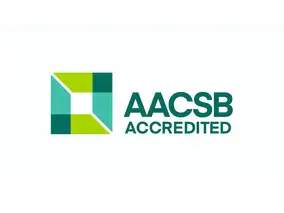Where you can study
International students
International students are not New Zealand citizens or residents.
Specialise in Financial Planning and Advice for your Bachelor of Business at Massey
The skills taught in the Bachelor of Business (Financial Planning and Advice) will help those who wish to develop knowledge relevant to this important and growing sector. The qualification can be configured to assist you if you are either wanting to become a financial planner, or those already in the industry that are looking to gain further certification. Please note that this qualification does not satisfy the educational requisite established by the Financial Markets Authority under the current Code of Professional Conduct for Financial Advice Services. A student seeking to be licenced as a financial adviser in New Zealand should consider taking the Certificate in Financial Advice which does grant such status. It will be possible to cross credit some of the credits from the certificate back into the bachelor’s degree as part of the elective schedule.
You will develop your numeracy, logic and analytical skills. A financial planner or adviser works with people to help them make the best financial decisions for their situation – whether it is mortgages, term investments, shares or insurance options.
You’ll learn about the components of the personal financial planning process. You’ll study financial institutions and markets as well as instruments. You’ll get a sound theoretical foundation, on which you can build practical applications.
At a more advanced level, you can choose from courses in advanced tax and estate planning, property finance, investment analysis, personal risk management and banking. You’ll have access to our state-of-the-art Trading Room, where you’ll gain real-world experience in fund management with Massey’s dedicated student fund.
The Bachelor of Business will give you the leadership, communication and critical thinking skills that will make you a sought-after employee. These skills can be used in many different types of businesses, in New Zealand and around the world.
Further study
You may wish to consider going on to postgraduate study once you have finished your degree.
A Bachelor of Business in Financial Planning and Advice is a good fit if you:
- have an aptitude for maths, finance and economics
- like working with numbers and people
- are a financial adviser who wishes to upskill and gain professional certification with Financial Advice New Zealand.
Planning information
If you study full-time, in your first year, you’ll take eight 15-credit courses, making a total of 120 credits.
If you wish to study over two semesters, you should aim for 60 credits per semester. You may be able to take some courses at summer school. Make sure you include courses that are prerequisites for the next level of courses you wish to study.
Core business courses
There are ten core business courses and you must pass at least eight of them. The core courses are 115111, 115112, 115113, 115114, 115115, 115116, 115211, 115212, 115230 and 115340.
You must pass at least 60 credits of 100-level core courses within the first 120 credits, and and at least 30 credits of 200 or 300-level core courses within the first 240 credits of study towards the degree.
These are courses which cover topics across the business spectrum. They are designed to give you the leadership, communication and solid business skills that you will need in your career.
Electives
For this Financial Planning and Advice major we do recommend that you choose one of the following first year courses for your elective choices in your first year: Applied Statistics or Statistics. These courses will assist with your numeracy abilities.
Minors
Completing a minor is optional. Minors increase the breadth of your degree. They give you extra knowledge, attributes and capabilities.
A minor must be in a different subject from your major.
A Bachelor of Business (Financial Planning and Advice) with a minor
You may choose a minor from any university undergraduate degree that has recognised minors. If the minor is from another undergraduate degree, the regulations of that qualification will apply.
A Financial Planning and Advice minor (for students who are studying a different degree)
If you are not studying a Bachelor of Business (Financial Planning and Advice) and wish to complete a minor in Financial Planning and Advice, see the BBus regulations for the requirements of this minor.
Meeting requirements for industry membership
If you wish to meet the education requirements for becoming a CERTIFIED FINANCIAL PLANNERCM professional you must take the seven compulsory courses for the Bachelor of Business (Financial Planning and Advice) major and 125340 as your elective paper of the major.
CERTIFIED FINANCIAL PLANNERCM is a common law certification mark owned outside the U.S. by Financial Planning Standards Board Ltd. Financial Advice New Zealand is the marks licensing authority for the CFP Marks in New Zealand, through agreement with FPSB.
Please note that this qualification is not designed to map to the content required in the Code of Professional Conduct for Financial Advice Services as set out by the NZ Financial Markets Authority. A student seeking to be licenced as a financial adviser in NZ should consider taking the Certificate in Financial Advice, which does grant such status.
Official regulations
To understand what you need to study and must complete to graduate read the official rules and regulations or this qualification.
You should read these together with all other relevant Statutes and Regulations of the University including the General Regulations for Undergraduate Degrees, Undergraduate Diplomas, Undergraduate Certificates, Graduate Diplomas and Graduate Certificates.
Returning students
For returning students, there may be changes to the majors and minors available and the courses you need to take. Go to the section called ‘Transitional Provisions’ in the Regulations to find out more.
In some cases the qualification or specialisation you enrolled in may no longer be taking new enrolments, so may not appear on these web pages. To find information on the regulations for these qualifications go to the Massey University Calendar.
Please contact us through the Get advice button on this page if you have any questions.
Courses you can enrol in
Course planning key
- Prerequisites
- Courses that need to be completed before moving onto a course at the next level. For example, a lot of 200-level courses have 100-level prerequisite courses.
- Corequisites
- Courses that must be completed at the same time as another course are known as corequisite courses.
- Restrictions
- Some courses are restricted against each other because their content is similar. This means you can only choose one of the offered courses to study and credit to your qualification.
Core courses for the Bachelor of Business
As well as the specialisation courses listed below, this qualification has core courses that you will need to complete.
Bachelor of Business core courses
Financial Planning and Advice courses
Compulsory Courses
Course code: 110380 Estate and Tax Planning 15 credits
Practical issues arising in estate and tax planning for investors and small business in New Zealand.
View full course detailsCourse code: 125211 The Financial Planning Process 15 credits
This course introduces students to the theories and processes relating to Financial Planning and Advice.
View full course detailsCourse code: 125220 Financial Institutions and Markets 15 credits
An overview of the operation of institutions, products and markets which make up the financial system and discusses the role of governments, both domestically and internationally, in the management of our financial system.
View full course detailsCourse code: 125241 Introduction to Investments 15 credits
An introduction to the fundamental and practical concepts of the investment process. Investment products, including equity, debt instruments, and derivatives are discussed as well as basic portfolio concepts.
View full course detailsCourse code: 125310 Financial Advice Implementation 15 credits
This capstone course deals with the implementation of the financial planning process, including the formation of a comprehensive financial plan.
View full course detailsCourse code: 125312 Applied Personal Financial Management 15 credits
An examination of the issues and potential solutions pertaining to individual personal financial management decisions.
View full course detailsCourse code: 125351 Personal Risk Management 15 credits
This course provides an overview of personal risk management, and the methods of mitigating potential impact including the role of insurance.
View full course detailsCompulsory Course Selection
Course code: 110289 Taxation 15 credits
An introduction to the basic principles of taxation, the elements of taxation and the concepts that govern tax practice. The course will also provide an awareness of the economic implications of taxation at both local and global levels.
View full course detailsCourse code: 115388 Internship in Business 30 credits
Provides an individual practical experience in business, linking theory to practice. It consists of a period of supervised study and practical experience in an area related to individual disciplinary and professional interests.
View full course detailsCourse code: 115389 Business Internship 15 credits
This course provides an individual practical experience in business in which students deliver a set project in a business, linking theory to practice.
View full course detailsCourse code: 125340 Investment Analysis 15 credits
The application of analytical techniques to investment decision-making.
View full course detailsCourse code: 125364 Bank Financial Management 15 credits
An application of finance and economic theory to the financial management and operation of banks globally, from a risk and regulatory perspective.
View full course detailsCourse code: 127245 Introduction to Property Finance and Investment 15 credits
Introduction to property investment analysis, the role of property finance and the evaluation of property financing decisions.
View full course detailsCourse code: 127378 Property Economics and Planning 15 credits
A study of location theory, planning and the economic dynamics involved in the development of cities, using analysis of property space and asset class.
View full course detailsEntry requirements
Admission to Massey
All students must meet university entrance requirements to be admitted to the University.
Specific requirements
There are no specific entry requirements for this qualification, outside of university admission regulations.
English language requirements
To study this qualification you must meet Massey University's English language standards.
English language skills
If you need help with your English language skills before you start university, see our English for Academic Purposes (EAP) courses.
Can't meet the entry requirements?
If you need to do a course before you start your qualification, there may be options for you in Summer School.
Fees and scholarships
Fees, student loans and free fees scheme
Your tuition fees may be different depending on the courses you choose. Your exact fees will show once you have chosen your courses.
There will also be some compulsory non-tuition fees and for some courses, there may also be charges for things such as study resources, software, trips and contact workshops.
- Get an estimate of the tuition fees for your qualification
- View a list of non-tuition fees that may be payable
Already know which courses you're going to choose?
You can view fees for the courses that make up your qualification on the course details pages.
Student loans (StudyLink) and Fees Free scheme
You may be eligible for a student loan to help towards paying your fees.
The New Zealand Government offers fees-free tertiary study for eligible domestic students. Find out more about the scheme and your eligibility on the Fees Free website. To use the site's eligibility checking tool, you will need your National Student Number.
Current and returning Massey students can find their National Student Number in the student portal.
- Student loans (StudyLink)
- Fees Free
- Student portal
Scholarship and award opportunities
Find more scholarships and awardsFees disclaimer
This information is for estimation purposes only. Actual fees payable will be finalised on confirmation of enrolment. Unless otherwise stated, all fees shown are quoted in New Zealand dollars and include Goods and Services Tax, if any. Before relying on any information on these pages you should also read the University's Disclaimer Notice.
Careers and job opportunities
Employment opportunities in the financial advice area are predicted to rise faster than average in the next few years.
A qualification in financial planning and advice offers opportunities in a wide range of careers, from banks or companies that specialise in finance to a financial planning specialist in a small to medium-sized company. Many financial advisers are self-employed. Further professional certification may be required in New Zealand and other countries.
Careers may include:
- financial planner
- financial adviser
- wealth manager
- insurance adviser
- mortgage adviser.
International students
New Zealand is a great place to study. Massey University’s reputation is supported by our international rankings, accreditations and associations. We are rated five star plus by the QS World University Rankings.
Massey University has small class sizes, and our lecturers and staff are friendly and approachable.
As an international student, there are entry requirements that will apply to you. We recommend that you apply at least three months before your anticipated start date so your application can be processed in time. There are additional steps you will need to take. These include obtaining a visa and travel bookings if your study is to be in New Zealand.
Accreditations and rankings

Association to Advance Collegiate Schools of Business (AACSB)
Massey Business School is rated in the top 5% of global business colleges by AACSB International.

Financial Advice New Zealand
This qualification satisfies the education requirements for becoming a CERTIFIED FINANCIAL PLANNER CM professional with the professional body Financial Advice New Zealand (other non-educational requirements are required).

QS Ranking - Business Management Studies
Massey University is ranked by QS (Quacquarelli Symonds) as one of the top 400 universities for business and management.
Related study options
Certificate in Financial Advice – CertFinAdvice
Gain introductory specialist knowledge and financial advice skills to prepare you for entry into the financial advice industry.
Finance – Bachelor of Business
Join Massey University’s finance programme to gain superior decision-making skills and a career advantage.
Finance – Master of Business Studies
Massey’s Master of Business Studies (Finance) will give you the business and finance skills to take your career to the next level.
Financial Advice – Diploma in Business Studies
With Massey's Diploma in Business Studies (Financial Advice) you'll gain introductory specialist knowledge and financial advice skills to prepare you for entry into the financial advice industry.
Financial Analytics and Research – Master of Finance
Massey’s Master of Finance (Financial Analytics and Research) combines the study of advanced finance theory and research to complete the qualification.
Personal Financial Planning – Graduate Diploma in Business Studies
Keen for a career in financial planning? By studying Massey’s Graduate Diploma in Business Studies (Personal Financial Planning) you can change the direction of your career.
Risk Analytics – Master of Finance
Massey’s Master of Finance (Risk Analytics) combines the study of advanced finance theory and completes the qualification with professional inquiry.
Useful planning information

Key information for students
Compare qualifications and academic information across different New Zealand institutions. Learn more on careers.govt.nz
